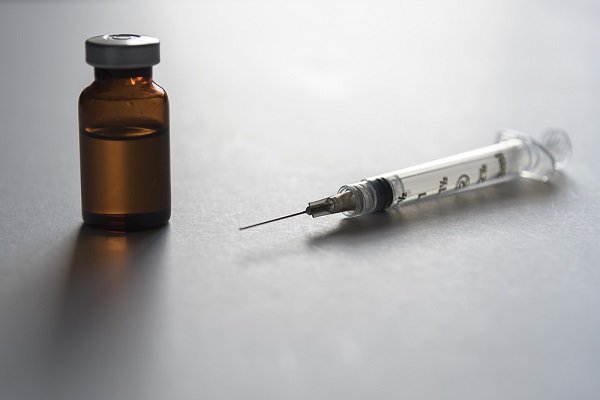 By some estimates, the cost of insulin has tripled in the last ten years, even though the medication has stayed the same.
By some estimates, the cost of insulin has tripled in the last ten years, even though the medication has stayed the same.
Public outrage over high insulin prices, fueled by stories of diabetes patients dying because they couldn't afford their medication, is driving a new flurry of measures that aim to control or reduce prices for the drug.
It has been almost exactly two years since Jesse Lutgen died on Feb. 7, 2018, after losing his health insurance and not being able to afford insulin for his Type 1 diabetes. Lutgen's death is one of more than ten similar cases in the last three years—Americans who died from a health condition that is easily treatable with medications that used to be more affordable.
Related: Class-action suit over insulin prices gets green light
By some estimates, the cost of insulin has tripled in the last ten years, even though the medication has stayed the same. An online study for T1international, a group that advocates for diabetes patients, found that 26 percent of Americans with diabetes in the survey said they had rationed their medication in the past year—the top rate among the high-income countries surveyed for the study.
"The price is so high that people are doing desperate things to get by, like using expired insulin, relying on crowdfunding to pay their bills, or taking less insulin than they need in an effort to ration their supplies," reported Right Care Alliance, a patients' rights group. "Rationing is extremely dangerous and can lead to a deadly condition known as diabetic ketoacidosis."
Politicians scramble to address insulin prices
The high price of insulin has become an issue for politicians on both sides of the aisle, but the Democratic presidential candidates in the Iowa caucuses have made high insulin prices one of their top talking points.
Janelle Lutgen, Jesse's mother and an Iowa native, has been on a personal campaign to deliver an empty insulin vial to every presidential candidate, along with a plea to address the issue.
The candidates have been listening. Bernie Sanders has organized drug-purchasing trips to Canada to highlight drug cost issues. Elizabeth Warren has pushed legislation to allow cheaper manufacturing of insulin and generic drugs. Joe Biden, Amy Klobuchar, Andrew Yang—all of the presidential candidates have weighed in on an issue that is easy to understand and underscores the problems of limited access to life-saving drugs—due to what is perceived as corporate greed.
"When you run for president, you can't go a couple of days without talking to somebody who's describing someone they love who's dependent on insulin or some medication," candidate Pete Buttigieg recently told a reporter from STAT, a website that covers life sciences.
States have begun legislating solutions
As with many issues, the gridlock in Washington, D.C. has bogged down possible legislative solutions—leaving states to take the lead on the issue. Colorado and Illinois have both passed laws capping insulin copays for diabetics, and six other states are considering similar measures, according to Bloomberg Law.
However, the complexity of health care regulation means that there are limits to how many people are actually covered by these state laws. "States are powerless to help those covered by Medicare and other federal health-care programs; self-funded health plans regulated by the Employee Retirement Income Security Act that are generally offered by employers. Medicaid, a joint federal-state program, is also outside of state regulators' jurisdiction," said the Bloomberg Law story, written by Christopher Brown.
Industry players also take steps to reduce costs
The continued bad publicity has led players in the pharmaceutical industry to announce their own efforts in addressing the issue. On January 20, pharmacy benefits manager (PBM) CVS Caremark unveiled RxZERO, a program that would enable employer-based health plans to offer all diabetes medicines with a zero-dollar copay.
The PBM said that diabetes medications, including insulin, can be offered with no copay by adjusting formularies to favor generic forms of drugs and by better diabetes-management programs that improve adherence to treatment guidelines. CVS estimates that when a diabetes patient goes from non-adherent status to adherent, employer health care costs drop by $2,202 per year. The PBM stresses that this approach addresses a range of diabetes costs, and helps patients better manage their disease.
"Traditionally, the focus of affordability for diabetes medications has been on insulin, which is the cornerstone of therapy for the five percent of people with diabetes who are living with type 1 diabetes," said Troyen A. Brennen, MD, Chief Medical Officer, CVS Health. "RxZERO provides affordable options for the entire range of diabetes medications, improving affordability for the 95 percent of people with diabetes who are living with type 2 diabetes."
Last April, PBM Express Scripts offered its own solution for employer-based plans, with a $25 monthly cap on insulin drugs. Drug manufacturers worked out the deal with Express Scripts by absorbing the extra costs. Groups such as T1International expressed skepticism about the Express Scripts plan, saying it didn't cover enough people.
Read more:
© 2025 ALM Global, LLC, All Rights Reserved. Request academic re-use from www.copyright.com. All other uses, submit a request to [email protected]. For more information visit Asset & Logo Licensing.







